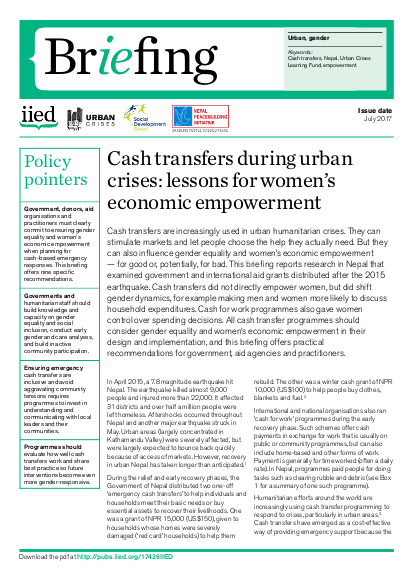
Cash transfers are increasingly used in urban humanitarian crises. They can stimulate markets and let people choose the help they actually need. But they can also influence gender equality and women’s economic empowerment — for good or, potentially, for bad. This briefing reports research in Nepal that examined government and international aid grants distributed after the 2015 earthquake. Cash transfers did not directly empower women, but did shift gender dynamics, for example making men and women more likely to discuss household expenditures. Cash for work programmes also gave women control over spending decisions. All cash transfer programmes should consider gender equality and women’s economic empowerment in their design and implementation, and this briefing offers practical recommendations for government, aid agencies and practitioners.
Links
Resource collections
- Innovation
- UN Habitat - Urban Response Collection
- Urban Response - Urban Crisis Preparedness and Risk Reduction
- Urban Response Collection - Community Engagement and Social Cohesion
- Urban Response Collection - Economic Recovery
- Urban Response Collection - Environment and Climate Change
- Urban Response Collection - Housing, Land and Property
- Urban Response Collection - Urban Crisis Response, Recovery and Reconstruction
- Urban Response Collection - Urban Resilience